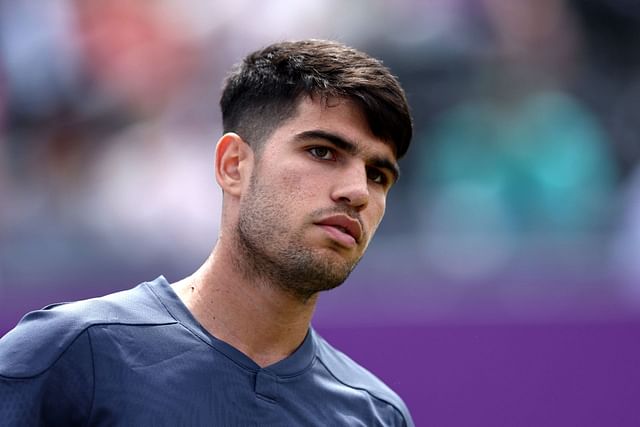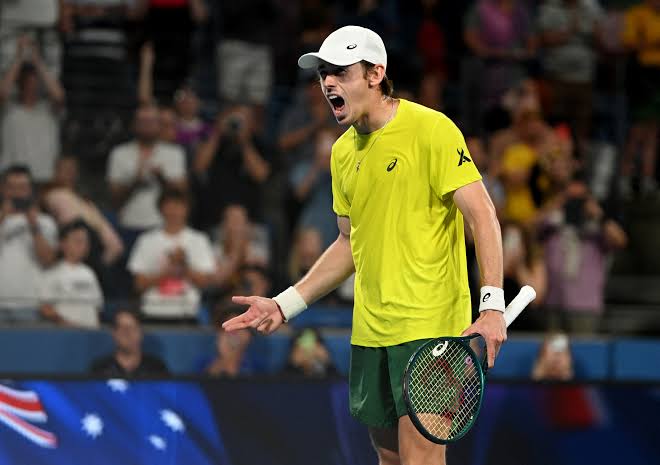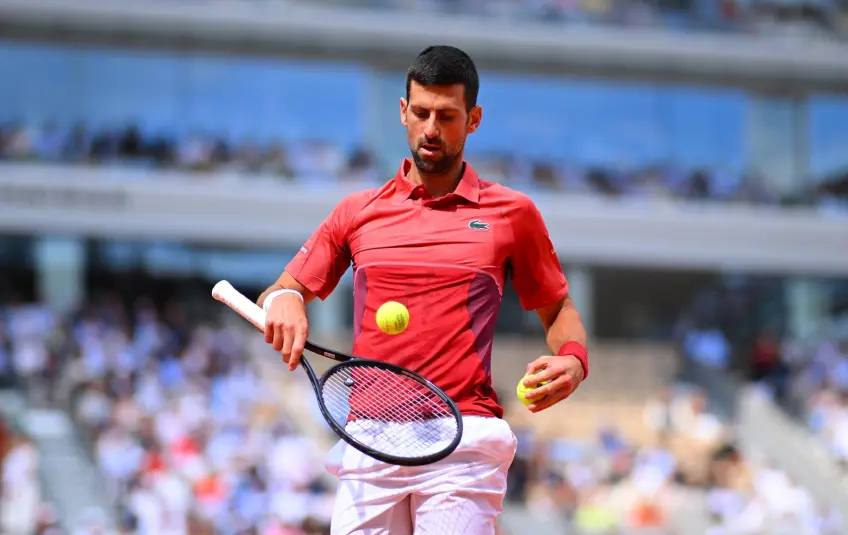The traditional and storied Queen’s Club Championships in London saw unexpected controversy this year, not just from the players’ performance on the grass courts, but also from a new implementation aimed at speeding up the game. Carlos Alcaraz, the world number one and the tournament’s top seed, voiced his displeasure with the recently introduced shot clock system, prompting a wave of discussion and debate within the tennis community.
The New Shot Clock System Introduced at the start of this grass-court season, the shot clock is designed to enforce the 25-second time limit between points, a rule that has been inconsistently applied in the past. The goal is to streamline matches and make them more television-friendly by reducing downtime. However, for many players, this new system has become a point of contention.
Carlos Alcaraz’s Critique Alcaraz, known for his intense play style and strategic pauses between points, has been one of the most vocal critics of the shot clock. During a press conference after his second-round victory at Queen’s Club, Alcaraz did not mince words.
Tennis is its own sport. We have our rhythms and our rituals between points, which are part of what makes the game unique. This new shot clock is disrupting that balance. It feels rushed and unnatural.
Alcaraz argued that the pressure of adhering to the shot clock detracts from players’ ability to strategize and recuperate between points. He highlighted that the physical demands of tennis necessitate these brief intervals to maintain peak performance and avoid injuries.
Pushback from Andy Murray’s Ex-Coach The complaints from Alcaraz did not go unchallenged. Jamie Delgado, the former coach of British tennis star Andy Murray and a respected voice in the tennis community, offered a counterpoint to Alcaraz’s concerns.
Tennis, like all sports, evolves, Delgado stated during an interview with BBC Sport. The shot clock is not an attempt to undermine the game’s traditions but to enhance the viewing experience and ensure matches progress at a consistent pace.
Delgado pointed out that other sports have successfully implemented timekeeping measures without compromising their integrity. He cited examples from basketball, where the shot clock has been integral to the game’s modern development, and football, with its strict timing for plays.

Players will adapt,” Delgado continued. It’s a matter of finding a balance between maintaining the sport’s unique qualities and making it accessible and engaging for a global audience. The top players, including Carlos, are more than capable of adjusting their routines.
The Broader Impact on Tennis This debate is emblematic of a broader tension within professional tennis: the balance between tradition and modernization. While purists argue that tennis’s charm lies in its timeless rituals and the mental duel between players, advocates for change emphasize the need to cater to an evolving audience with shorter attention spans.
The ATP, in its defense of the shot clock, has highlighted data suggesting that match times have become more predictable and slightly shorter, leading to fewer delays and a more consistent viewing experience. This is particularly important for broadcasters and sponsors, whose investment is crucial for the sport’s financial health.
Player Reactions Reactions among other players have been mixed. Rafael Nadal, a long-time advocate for player routines, expressed some sympathy for Alcaraz’s position, noting the importance of these moments for mental reset. Conversely, younger players like Jannik Sinner and Holger Rune have shown a willingness to embrace the shot clock, seeing it as a way to keep the game dynamic and fast-paced.
Looking Ahead As the debate continues, the ATP and tournament organizers are likely to monitor the impact of the shot clock closely. Feedback from players, coaches, and fans will be critical in determining whether this innovation becomes a permanent fixture or undergoes further modifications.For now, as Queen’s Club Championships progress towards its conclusion, the tennis world watches closely, balancing respect for its rich history with the inevitability of change.
Whether the shot clock will become an accepted part of tennis’s future or fade away remains to be seen, but the conversation it has sparked is a testament to the sport’s vibrant and evolving nature.



